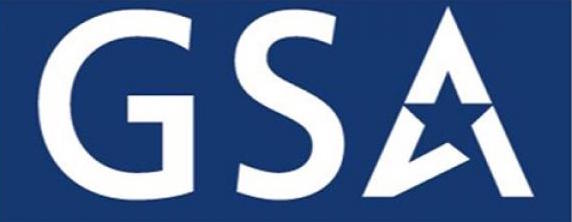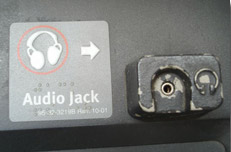
This post is part of an occasional series about recent legal developments impacting technology and information access for people with disabilities. The series is illustrated by a toolbox — because law has proven an effective tool in improving the accessibility and usability of digital content, print information and technology for everyone. There are many ways to use the law, reflected by the many tools in the toolbox.
This post contains legal developments between July 16 and December 15, 2014 (though I include a few earlier developments that didn’t make it in to prior updates). You can find the previous posts in the series in the Legal Updates Category of this website. Follow the Law Office of Lainey Feingold on Twitter for legal updates related to information and technology access, particularly for people who are blind and visually impaired. If you would like to be added to my email list, please visit the Contact page.
Lawyers in some of the country’s larges law firms are now paying attention to the issue of web accessibility. Some write scare-tactic articles trying to drum up business or frighten their clients into compliance. But others are writing thoughtful pieces urging business across all economic sectors to pay attention to accessibility and usability for people with disabilities. This quarter, as always, useful information came from the Seyfarth Shaw Title III blog edited by Minh Vu and Kristina Launey. Another good piece from a defense perspective was written by Perkins Coie lawyers and listed “Seven Things Retailers Can Do Now” to avoid ADA claims. The suggestions included “Make Conscious Procurement Decisions to Utilize Accessible Technologies.” Read the Perkins Coie post.
- If you think something is missing in the information below, please contact me
- Jump to a Simplified Summary of this Document, a feature of LFLegal.com designed to meet WCAG Success Criteria 3.1.5 (a WCAG 2.0 AAA Reading Level requirement).
U.S. Department of Justice Continues Push toward Digital Accessibility
Even though we don’t yet have web accessibility regulations for state and local governments or private business, the Department of Justice continues to demonstrate that the ADA requires websites and mobile applications to be accessible. Again this quarter the DOJ has been a strong force for protecting the rights of people with disabilities to digital access.
- Court Records: On July 17, 2014 the DOJ announced a settlement with a county court system in Florida that requires court records to be accessible to blind people. Read the DOJ accessible court records press release. The case was the result of advocacy by a blind lawyer who couldn’t get documents in accessible formats. According to the press release the Clerk of Courts “will provide individuals with disabilities with any document in the official court record in an accessible format upon request, and ensure that the Clerk of Courts’ website is accessible to individuals with disabilities, including blind individuals, in accordance with the Web Content Accessibility Guidelines (WCAG) 2.0 Level AA. Read the full DOJ Florida court settlement agreement.
- University Police Department: In June 2014 the DOJ announced a settlement with the Florida State University Police department to resolve a claim about the department’s asking inappropriate disability-related questions to candidates for employment. The agreement states that “FSU shall ensure that its FSU Police Department website, including its employment opportunities website and its mobile applications, conform to, at a minimum, the Web Content Accessibility Guidelines 2.0 Level AA Success Criteria and other Conformance Requirements (“WCAG 2.0 AA”).”Read the Florida State University Press Release. Read the full Florida State DOJ settlement agreement.
- Grocery Delivery:
 In November 2014 the Justice Department announced a sweeping digital accessibility settlement with the Peapod grocery delivery company. The company will use WCAG 2.0 Level AA as its accessibility standard for both web and mobile. Read the DOJ Peapod press release. Read the full settlement agreement between Peapod and the United States Department of Justice.
In November 2014 the Justice Department announced a sweeping digital accessibility settlement with the Peapod grocery delivery company. The company will use WCAG 2.0 Level AA as its accessibility standard for both web and mobile. Read the DOJ Peapod press release. Read the full settlement agreement between Peapod and the United States Department of Justice.
DOJ is One Step Closer to Issuing Regulations on Movie Captioning and Description
 The comment period on the Department of Justice’s proposed regulations on captions and description in the nation’s movie houses closed on December 1, 2014. In November, 2014 the National Association of the Deaf, along with other deaf and hard of hearing groups and the country’s largest association of theater owners announced they would file joint recommendations with the Department of Justice regarding the Notice of Proposed Rulemaking (NPRM). One of the joint recommendations states: “Closed captioning (CC) and audio description (AD) technologies are to be installed in all digital movie theater auditoriums nationwide.” Joint press release of the National Association of Theater Owners and Deaf and Hard-of-Hearing Organizations. The American Council of the Blind and the American Foundation for the Blind also filed comments on the audio (video) description part of the proposed rules.
The comment period on the Department of Justice’s proposed regulations on captions and description in the nation’s movie houses closed on December 1, 2014. In November, 2014 the National Association of the Deaf, along with other deaf and hard of hearing groups and the country’s largest association of theater owners announced they would file joint recommendations with the Department of Justice regarding the Notice of Proposed Rulemaking (NPRM). One of the joint recommendations states: “Closed captioning (CC) and audio description (AD) technologies are to be installed in all digital movie theater auditoriums nationwide.” Joint press release of the National Association of Theater Owners and Deaf and Hard-of-Hearing Organizations. The American Council of the Blind and the American Foundation for the Blind also filed comments on the audio (video) description part of the proposed rules.
With so much delay in federal regulations it is hard to know when the rules will be finalized. Hopefully the joint recommendations will speed the process.
Federal Contractors Suit over GSA’s Inaccessible Website
 As reported in the last update, a lawsuit was filed in April against the General Services Administration. The suit was brought by federal contractors and the American Council of the Blind, and seeks to remedy the GSA’s website that is not accessible to blind federal contractors. According to the press release announcing the suit, “GSA is responsible for ensuring that recipients of federal funding comply with the Rehabilitation Act, which prohibits both the federal government and recipients of federal funding from discriminating on the basis of disability, including blindness.” Read ACB’s press release about the GSA web lawsuit.
As reported in the last update, a lawsuit was filed in April against the General Services Administration. The suit was brought by federal contractors and the American Council of the Blind, and seeks to remedy the GSA’s website that is not accessible to blind federal contractors. According to the press release announcing the suit, “GSA is responsible for ensuring that recipients of federal funding comply with the Rehabilitation Act, which prohibits both the federal government and recipients of federal funding from discriminating on the basis of disability, including blindness.” Read ACB’s press release about the GSA web lawsuit.
But instead of quickly remediating access barriers, the federal agency chose to fight and filed legal papers to get the case thrown out of court. On November 21, 2014 a hearing was held before Judge Bertk A, Howell of the Washington, DC Federal District Court on GSA’s motion. After extensive briefing and oral argument, the judge rejected GSA’s efforts to dismiss the case. The case will now move forward.
Right to Read
On July 29, 2014 the National Federation of the Blind filed a lawsuit against Scribd, an Internet-based “personal digital library” that allows subscribers to access a collection of over 40 million titles. The website and mobile application that Scribd makes available to readers is not accessible to blind people. The case was filed in federal court in Vermont. Heidi Viens, a blind mother, is also a plaintiff in the lawsuit. Read the press release about the Scribd case.
Right to Vote
In September 2014 a federal judge in Baltimore, Maryland ordered the state’s election officials to adopt an online absentee voter tool to protect the right of blind voters to cast a private ballot. The suit was filed against the Maryland Board of Elections by the National Federation of the Blind. An article on the Disability Rights Galaxy website includes links to the court’s ruling and the press release of the NFB. Read the September 16 article Court orders Maryland to use accessible absentee voting system
Emergency Preparedness
In September 2014 Disability Rights Advocate announced it had filed suit against Washington, DC for failing to consider the needs of people with disabilities in emergency planning. Among other things, the lawsuit states that the District failed to plan for emergency communications to persons who are deaf and blind. DRA has a similar suit pending against New York City. On September 30, 2014 the parties in the New York case announced a comprehensive settlement which is currently pending final approval. Read more about the New York emergency preparedness case.
Read the press release about DRA’s emergency preparedness suit against Washington, DC.
Digital Accessibility in Education
- In August 2014 a blind woman sued the Seattle school district because its website and math software aren’t accessible to her as a screen reader user. The woman, Noel Nightingale, has three children in the Seattle school district. Her case is supported by the National Federation of the Blind. Read an article about the Seattle school’s web case.
- On December 12, 2014, the United States Department of Education, Office of Civil Rights, announced a settlement with Youngstown State University. The settlement requires that the University’s website be accessible to everyone, including students, employees and applicants with disabilities. Under the agreement the university will, among other things, “Review its website and e-learning platform(s) to identify and fix any accessibility problems, as well as to put in place mechanisms to ensure that the sites continue to be accessible.” Read the press release from the Department of Education about the Youngstown settlement.
Student Loan Information Will be Accessible
 On October 8, 2014 the National Federation of the Blind announced a sweeping agreement that will make student loan information in the United States accessible to blind students. Blind students were represented by the Baltimore civil rights firm Brown, Goldstein & Levy and by the Disability Rights Education and Defense Fund.
On October 8, 2014 the National Federation of the Blind announced a sweeping agreement that will make student loan information in the United States accessible to blind students. Blind students were represented by the Baltimore civil rights firm Brown, Goldstein & Levy and by the Disability Rights Education and Defense Fund.
According to the press release:
The agreement commits the Department of Education and the student loan servicers with which it contracts to make websites, forms, and documents related to the department’s Direct Loan program equally accessible to blind applicants and borrowers. The requirements include providing documents in alternative formats such as Braille and large print and allowing blind people to fill out and electronically sign and submit accessible versions of student loan applications and forms. NFB Student Loan Press Release
Read the NFB Student Loan press release.
Accessible ATMs
 Cardtronics: A November 24, 2014 press release announced the launch of the Cardtronics Accessibility Center of Excellence. According to the release, the mission of the Center is “to deliver an industry-leading voice-guided user experience at Cardtronics-supported ATMs.” It is part of a multi-year agreement between company, the National Federation of the Blind (NFB) and the Commonwealth of Massachusetts. Read the Cardtronics Talking ATM press release. The agreement ends long-running litigation against Cardtronics for its failure to have ATMs that blind people can use.
Cardtronics: A November 24, 2014 press release announced the launch of the Cardtronics Accessibility Center of Excellence. According to the release, the mission of the Center is “to deliver an industry-leading voice-guided user experience at Cardtronics-supported ATMs.” It is part of a multi-year agreement between company, the National Federation of the Blind (NFB) and the Commonwealth of Massachusetts. Read the Cardtronics Talking ATM press release. The agreement ends long-running litigation against Cardtronics for its failure to have ATMs that blind people can use.
Social Security Administration Promotions Case
A massive settlement aimed at ending discrimination in the promotion system for employees of the U.S. Social Security Administration received preliminary approval in October 2014 by an EEOC administrative judge. In addition to ensuring compliance with Section 508 and establishing processes and procedures for ensuring non-discrimination in promotion, the settlement establishes a 9 million dollar fund to remedy past discrimination. Information about filing claims (which must be filed by February 26, 2015), the settlement agreement and more can be found on the website dedicated to the settlement. Visit the Social Security Disability Settlement website. Read the Social Security Administration press release.
In March 2015 Linda Dardarian and I will be presenting the Digital Accessibility Legal Update at the 30th International Technology and Persons with Disabilities Conference. The next update on the website will be posted after that.